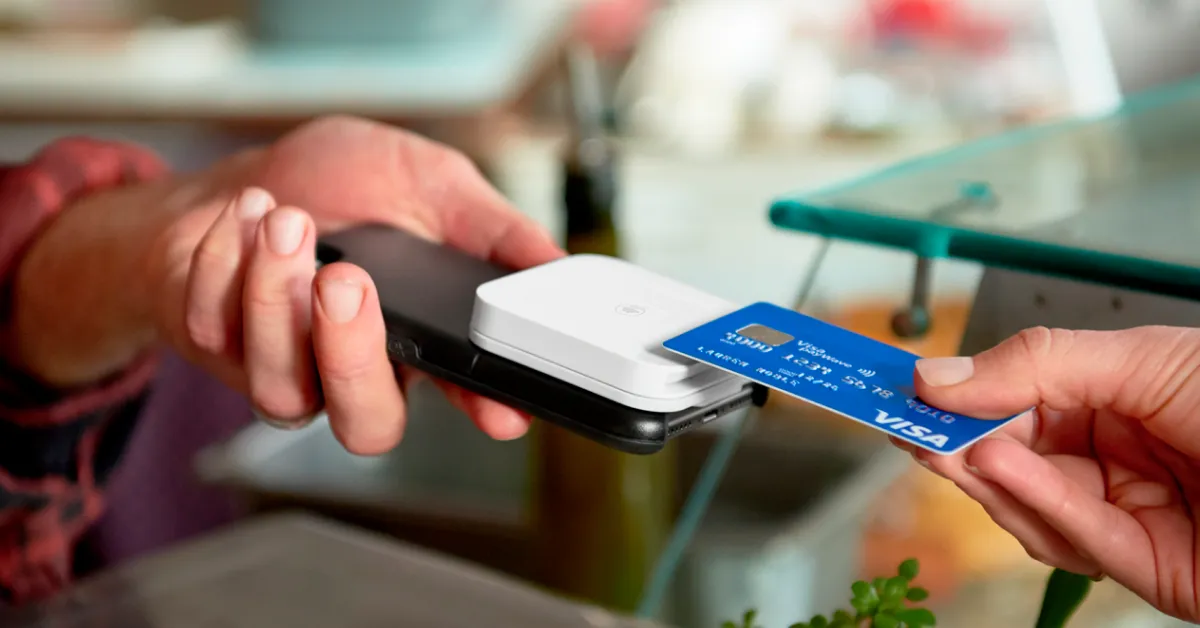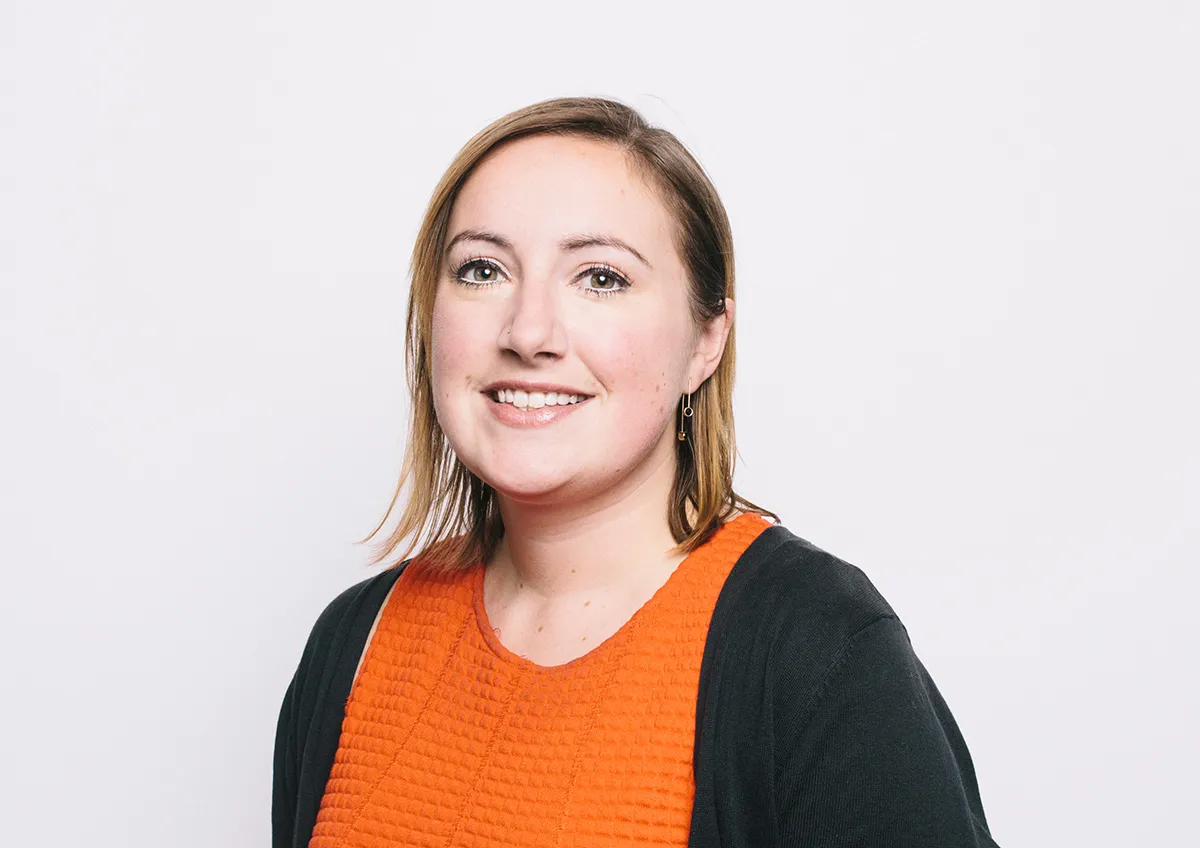Table of contents
Square research has shown that 1 in 6 Brits is now a “card-only” cashless shopper. Below we hear from consumers across the UK about their views on cash, card payments—and how both affect their buying habits.
Ashani Rajapakse, Orpington
“If I don’t have cash on me I go to the supermarket”
Ashani from Orpington is a marketing manager, and one of the thousands of modern shoppers who choose to pay exclusively by card.
With a preference for debit card purchases, Ashani says the speed and convenience of these payments is what has led her to always reach for card instead of cash. In fact, on a typical day, Ashani says the most cash she carries is £5. For her, the choice to switch to card came with having a steady income, saying she made the change “when I was out of uni and in my first full-time employment.”
While she has not stopped shopping with cash-only stores, she admits that if she finds herself short of cash, finding a shop that accepts card would take priority over finding a cash point. Giving the example of the local market, Ashani says, “Take the local veg and fruit stall. If I don’t have cash on me I go to the supermarket.”
Like many shoppers, Ashani’s eagerness to support local businesses is based on the shop’s ability to accept card, saying she would gladly shop at smaller businesses if they let her pay by her preferred method. Her decision to pay primarily by card has informed her shopping habits, with chain stores more likely to receive her custom due to their readiness to accept card, explaining that in these shops, “you do not need to worry about having enough cash.”
Anna Campbell, Edinburgh
Anna Campbell runs a jewellery design school in the Stockbridge area of Edinburgh and relies on her debit card to make the vast majority of her purchases. She finds it relatively easy to live a cash free lifestyle, paying for things like tram tickets with her card quickly and easily. “I’ve stopped shopping in places that only take cash.”
Anna enjoys being able to track her finances through mobile banking apps, unlike cash which she says “just disappears”, and has two on the go so she can enjoy immediate visibility of her spending instead of waiting for statements. Like many card-converts, it’s this ability to track each purchase that has encouraged Anna to use her card for as many of her spends as possible, even for the smallest of shops, as she says, “I buy milk and bread regularly with card, I just don’t shop in places where I can’t use my card.”
Limits on card usage or fees for payments below £10 have also served to prevent Anna becoming, or remaining, a customer of certain shops. Recalling her recent experience in a local deli she explains, “I was having a look at the things I wanted to buy and had to make it up to a minimum spend to use card, which was annoying. After an experience like that, I’m unlikely to become a return shopper.” Similarly, another local shop that also imposes a minimum spend on card use has now lost Anna as a customer altogether as she tends to not shop there anymore.
Amelia Torode, South London
Amelia is 42 and the founder of brand and marketing consultancy, Fawnbake Collective. Calling South London home, contactless is less of a choice and more of a way of life for this modern Londoner. A fan of shopping locally, Amelia makes sure she’s equipped with her phone when paying a visit to the shops, big and small alike.
Preferring to pay via contactless on her phone, Amelia says the amount of cash she carries on her at any time can be as little as 50p, while her pockets remain conveniently free of paper receipts, with contactless phone payments letting her store them all digitally. The few instances that require her to carry more substantial amounts of cash include paying for after school care and cleaner fees, requiring as much as £100.
Cash-only shops are becoming a rarity for consumers in the capital, even for the smallest of business, Amelia observes, “Lots of indie stores have card machines connected to iPads now.” For those few shops that aren’t equipped for contactless, this can directly affect customer service, having a negative impact on the buying experience, as Amelia has discovered, “It’s annoying. The nail shop yesterday was cash only – I had to find an ATM.”
John Crossley, London via Derby
Digital consultant John, 29, now calls London home after moving to the capital from his home city of Derby, and his consumer habits have been suitably adjusted to match his London lifestyle.
Like many consumers, John likes to keep a close eye on his spending habits and opts for the Monzo app to help keep him on top of the money going in and out of his bank account. Using the app to set targets for his spending and saving, John says he can now manage his money much better than before. As for cash, John calls it “very 19th Century” saying he was ready to start paying by card as soon as “contactless was introduced a few years ago.” A self-professed card-only shopper, John carries no cash at all on any typical day.
Like many card converts, John’s contactless shopping habits have brought an end to his visits to cash-only shops, saying simply, “I find it incredibly frustrating.” Limitations on card usage are still present even in new shops, and can prevent them from building a customer base, as John’s recent experience proves: “A new sandwich shop around the corner…had a minimum £10 charge to use a card. Most of the sandwiches were less than £5! I instead go to a separate place where there are no restrictions on using card.”
Driven away from businesses that refuse card and contactless, when asked if he would instead turn to chain stores, John answers simply “absolutely yes.” John says supporting independent retailers should go hand-in-hand with convenience: “I really want to be able to support small businesses where possible. But if I can’t pay on card it’s a real issue as I never carry any cash on me.”
Jonathon Woodward, Brighton
Jonathan, 26, lives in Brighton and Hove, and as an accountant, it’s his business to know how to handle personal spending. His preferred method of payment is card, which allows him to take advantage of exclusive offers, saying “I receive benefits and points using my cards.”
On a typical day, Jonathan’s pockets will be completely free of cash – as a card-only shopper, Jonathan claims it is “much more convenient than carrying lots of cash around” and sees card usage as an almost aspirational choice, saying he always expected to use card throughout his adult life.
Championing card payments, Jonathan’s visits to cash-only retailers have come to a halt, saying “I don’t ever have the cash on me to be able to shop in these places.” In his daily life, this means he no longer buys from some small cafes, corner shops and food stalls.
A fan of the convenience of local independent shops, Jonathan would always choose to walk to a local shop and give them his custom than drive to a chain store, provided they do not place charges or limits on his ability to use card. In such cases, Jonathan admits “If they charge me for using my card then I will go and make my purchase in a chain store instead.”
Giles Chater, Welwyn
Giles is in his 30s and lives in Welwyn, Hertfordshire. He is the European Operations Director for endurance sports company Tough Mudder and his payment method of choice, card, is the best match for his busy lifestyle.
Calling cash “frustrating”, Giles says he drastically reduced his cash-carrying habits about two years ago, and guesses that if he has any cash tucked away in his wallet, it would be no more than £5. He says he has been fully cashless for the past year, reflecting “I can’t remember the last time I consciously carried cash.” The prospect of ever going back to cash doesn’t excite him, either, “Last time I took out cash was to pay for a food vendor in London,” he says, adding, “standing in a queue by an ATM, feeling like my life was being wasted.”
Giles has stopped shopping with businesses that don’t take card, actively avoiding food stalls without card payment systems and choosing to shop at the supermarket instead. Giles believes accepting cards isn’t just about businesses making money, but about their customer service, explaining, “It’s a really awkward moment for everyone when they don’t take cards.”
Giles regularly pays for lunch, transport and entertainment purely by card, and considers the rewards you can get for spending, such as with Samsung Pay, as well as the ease with which spending can be tracked via bank app, even greater benefits of ditching cash.
For Giles, payment methods should enable people to get more enjoyment out of life, saying cash makes it “difficult to be spontaneous” as well as making his wallet more burdensome. Card simply makes his daily life easier, meaning he is always ready and able to pay and not held back by cash which he believes “restricts your ability to do what you want.”
Sarah Wilson, London
For Sarah, a 28-year-old Tech PR, contactless is her go-to payment choice. Originally from Portsmouth, Sarah is based in London and made the change to Apple Pay when she upgraded her phone to the iPhone 6 last year. She hasn’t looked back, saying “I will always have my phone with me, so it means that I can always be able to pay for things.”
On a typical day, Sarah will have no more than £10 cash on her in coins, and describes herself as an exclusively Apple Pay shopper, opting to use the app for every purchase that falls under the £30 contactless limit. She also admits that being able to use her preferred method of payment will directly affect her decision to shop in a particular place, admitting “I will think before shopping whether I will be able to pay with Apple Pay.”
The decision by some retailers to not accept Apple Pay has changed Sarah’s shopping habits, saying she is no longer a customer of “some clothes stores and smaller newsagents near my house.” Businesses which supported Apple Pay would get Sarah’s custom, though, who gives an enthusiastic “yes!” to the prospect of shopping more locally if shops were equipped with contactless payment systems.
Sarah believes that accepting card has “made it way more accessible” to buy not just in shops but from markets, pop-ups and street food stalls, observing “it means places like Camden and Borough can drive more business.”
David Chow, London
For 47-year-old David, a business strategist, he was ready to embrace going cashless from the moment he received his contactless enabled card.
“I have a small wallet which has almost no space for cash, and I don’t like handling coins.” he said. He also prefers the security of it, “I’ve had money fall out of my back pocket, £50 in one go, you never get that back.” The only cash he has in his wallet is a £10 note, untouched for three months and intended purely as ‘emergency cash’.
Originally from Stoke-on-Trent, David now lives in London where he finds it relatively simple to live a cash-free lifestyle – and even when travelling in the UK and beyond he relies upon his debit card as his main means of payment.
David’s enthusiasm as a card-only shopper means he finds the £30 contactless limit frustrating, preferring to pay by phone or card with a single tap. He also likes knowing where his cash is, referencing to his Northern upbringing as the reason for his precise handling of personal finances, “I’m northern – ten pounds is a lot of money – I don’t like losing track of where it’s gone. With card payments, I know how I have spent, and I can track it on my phone in real time.”
Being able to track his spending means David does as much of it by card as possible, paying for his daily coffee by card, and avoiding any place that might turn away a contactless payment, saying “I just don’t bother with businesses that don’t take cards, there are plenty more retailers in the sea.” His cashless attitude seems to be an ingrained habit, as he admits “I avoid places where I can’t use card, even without realising it.”
Read more about how Square is helping Britain’s businesses go confidently cashless on our blog.
![]()














